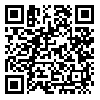Volume 26, Issue 3 (2019)
EIJH 2019, 26(3): 1-21 |
Back to browse issues page
Download citation:
BibTeX | RIS | EndNote | Medlars | ProCite | Reference Manager | RefWorks
Send citation to:



BibTeX | RIS | EndNote | Medlars | ProCite | Reference Manager | RefWorks
Send citation to:
Hamzehpour F, Ranjbarian B, Fathi S, Ansari A. The Strategic SWOT Analysis to Use Social Marketing in the Design of the Research Development Model of Islamic Azad University. EIJH 2019; 26 (3) :1-21
URL: http://eijh.modares.ac.ir/article-27-44337-en.html
URL: http://eijh.modares.ac.ir/article-27-44337-en.html
1- PhD Student of Marketing Management, Faculty of Economic and Administrative Sciences, University of Isfahan, Iran
2- 2Professor, Department of Marketing Management, Faculty of Economic and Administrative Sciences, University of Isfahan, Iran , b.ranjbarian@ ase.ui.ac.ir
3- Associate Professor, Department of Marketing Management, Faculty of Economic and Administrative Sciences, University of Isfahan, Iran
4- Assistant Professor, Department of Marketing Management, Faculty of Economic and Administrative Sciences, University of Isfahan, Iran
2- 2Professor, Department of Marketing Management, Faculty of Economic and Administrative Sciences, University of Isfahan, Iran , b.ranjbarian@ ase.ui.ac.ir
3- Associate Professor, Department of Marketing Management, Faculty of Economic and Administrative Sciences, University of Isfahan, Iran
4- Assistant Professor, Department of Marketing Management, Faculty of Economic and Administrative Sciences, University of Isfahan, Iran
Abstract: (1041 Views)
As non-profit organizations, universities have specific goals and missions, their performance must be assessed for exploiting their limited available resources and achieving organizational goals. The purpose of this study is to employ the obtained strategies for evaluating the status of research area in the Islamic Azad University using SWOT analysis and design the research development model of the university through social marketing mix. A mixed methods research (quantitative-qualitative) has been used for the study carried out in two stages. In the first stage, SWOT analysis is used and in the second stage, social marketing is employed given the extracted strategies in the previous stage. In the qualitative section, the statistical sample included experts (deputies, research managers, students and professors who were the members of the young researchers club in the first stage and assistant and associate marketing professors in the second stage) selected via purposive sampling and theoretical saturation. In quantitative section, the research was descriptive and field-based where the statistical sample included 370 respondents from university branches at Tehran and Alborz provinces and selected via stratified random sampling. According to Cronbach alpha coefficient, reliability of the SWOT questionnaire was estimated equal to 98% and that of social marketing was equal to 96%. According to the results of the study, integrated social marketing could result in favorable research behavior.
Article Type: Original Research |
Subject:
Arts and Humanities (General)
Received: 2020/07/10 | Accepted: 2019/09/19 | Published: 2019/09/19
Received: 2020/07/10 | Accepted: 2019/09/19 | Published: 2019/09/19
Send email to the article author
| Rights and permissions | |
 |
This work is licensed under a Creative Commons Attribution-NonCommercial 4.0 International License. |







